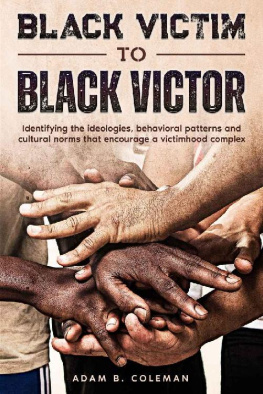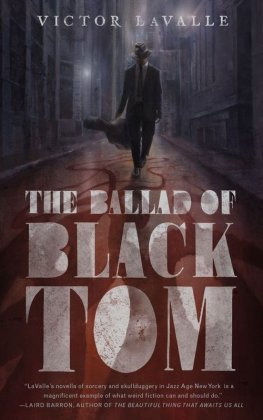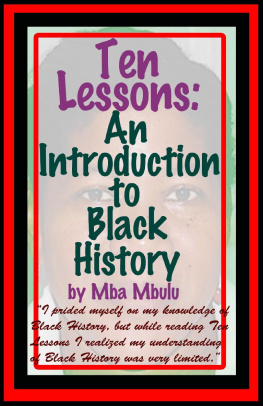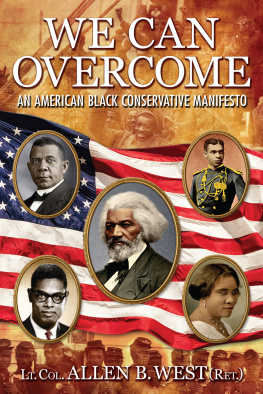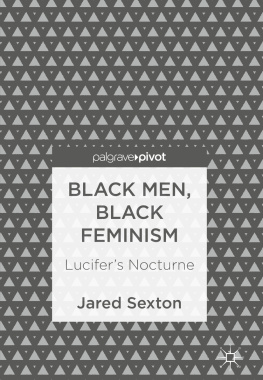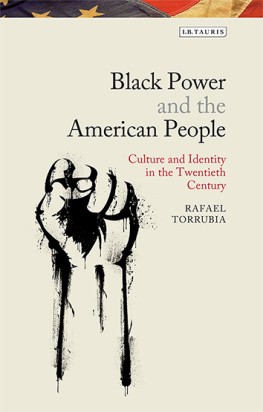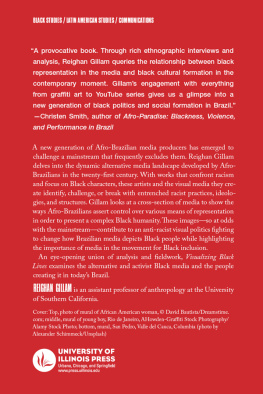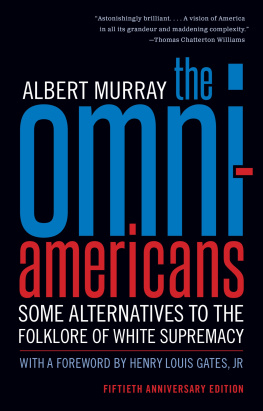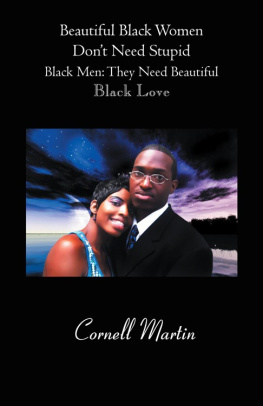
Copyright 2021 Adam B. Coleman.
All rights reserved. No part of this book may be reproduced, stored, or transmitted by any meanswhether auditory, graphic, mechanical, or electronicwithout written permission of both publisher and author, except in the case of brief excerpts used in critical articles and reviews. Unauthorized reproduction of any part of this work is illegal and is punishable by law.
Contents
A m I actually broken and if I am broken, can I be fixed? Why did it feel as if my birth created an inconvenience for my father and a burden for my mother? Why is the choice of neglect common place for black men? Why are black women forgiven for failing to select better men?
Why am I told to distrust the white man when I couldnt even depend on my black father? If the greatest danger to a black man in America is the white man, then why do the most successful black people choose to live among them? Why does my pigmentation determine my aspirations? Why must I live in the past with the pain of my ancestors instead of creating a future of hope?
Why does wanting aspirations of racial togetherness make me a traitor? Why is Martin Luther King Jr. given hero status, but we never listen to our heros message? Why is forgiveness seen as a weakness and resentment seen as empowerment? Why is white supremacy bad and black supremacy good? Why is hatred seen as subjective instead of objective?
Why must black people fit in a box? Why arent we allowed to decide for ourselves? Why must I fit a narrative? Why must I focus on race instead of class? Why does everyone think that they need to help black people? Why are black people tolerating lowered expectations from the liberal elite? Why must black people be Americas charity case?
How can we expect more from other Americans when we dont appear to expect much from ourselves? Why do we stay quiet when black men terrorize the innocent within our own communities but speak loudly when one of these terrorists dies? Why do we martyr flawed black men and ignore honorable black men? Why are a third of our pregnant black women aborting their children?
Why do we wait for the government to save us when we are capable of saving ourselves? Why do we overlook the destructive role that the government has played since the beginning? Why have we allowed family court to displace the black family? Why have we reduced the importance of the black father as being a bi-weekly check? Who benefits from our familial disorder?
Could it be the political elite that find us more beneficial divided than united? Could it be the alleged black leadership that needs useful victims for their boundless greed? Why are black people the only racial group that is expected to have authority figures? Why is it that these so-called black leaders are always in bed with the political establishment?
Why is honest curiosity seen as an assault? Why do these questions offend you? Why am I not given the benefit of the doubt? Why does removing black victimhood make us feel naked? Why are excuses replacing actions and intentions replacing results? Why are we not willing to admit that there has been immense progress made? Is it because we are secretly afraid of losing our leverage over white guilt?
Are we more in love with complaining than repairing? Do we believe we can achieve prosperity without the help of anyone else? Do we want to be Americas perpetual victim, or do we want to transform our groups situation into becoming Americas resilient victors?
These are only some questions Ive asked myself since I was a child. Much about black culture has always made me follow up with the word Why. This book is my attempt to answer these questions as thoughtfully and clearly as possible. I know Im not the only person who has thought about some of these questions, but we are typically unwilling to admit this publicly.
Within this book, I will critique a variety of taboo areas and you must understand that these critiques do not stem from hatred, they stem from concern. I will not be attacking people, I will attack the ideologies, behavioral patterns and cultures that surround us all. You can change the way someone thinks and behaves as long as you are willing to be honest and clear about what your analysis and Ive spent countless hours attempting to craft this message.
This book is not about converting people. Frankly, we spend too much time trying to convert people in order to have them think how we think instead of just supplying a different perspective. I do not expect everyone that reads this book to agree with everything I state, but if this book gets you to question at least one thing, then I have achieved my goal. I want people to question things more in their life, question the world around them and be lovingly critical when doing so.
I was able to write this book passionately because I wanted to express a message of love while talking about some tough topics. If you at any point during your reading experience begin to believe that I have hatred or anger about a group of people, then I would advise that you stop reading until you clear this notion from your mind. Too many of us have been corrupted with passive hatred and it is easy to misinterpret criticisms as being one of hate, but that is not me and that is not my intention.
There are valid questions that need to be asked and subsequently followed up with answers. Without these questions, black Americans will continue to be in a mental state of victimhood in America when I truly believe that we are victors. The first step to answering these questions is to be uncomfortably honest with ourselves and the world around us. In doing so, it will remove this gap in honesty that currently prevails.
I wanted to thank some very special people that are in my life that continually gave me encouragement throughout this year long adventure.
I want to thank my biggest cheerleader, my fiance, Michele. There were multiple days that I questioned writing this book and without her support, I dont think I could have made it to this point. With love, criticisms, and deep conversations, she helped to make this book a possibility for me.
I want to thank my British friend Louis Leseur for helping me to theoretically wake up to other ideological perspectives that I had never been exposed to before.
I want to thank my entire family for their support.
I want to acknowledge and thank the large variety of online friends that believed in me enough to encourage me to write this book in the first place.
I want to thank all my friends that allowed for me to share my writings and opinions throughout this process and cared enough to give constructive feedback.
Last but not least, I want to thank my son, Daniel, for being a continual inspiration in my life to be a better man and father. This book is in dedication to him.
This book is in loving memory to my Great Aunt Anne Harris. She will always be missed.
The ultimate measure of a man is not where he stands in moments of comfort and convenience, but where he stands at times of challenge and controversy.
Dr. Martin Luther King Jr. Strength of Love 1963
F ar too often we are too afraid of being honest with ourselves because the truth appears offensive, but it is real. We purposely hide from the reality because it hurts our good-natured sensibilities but, in many cases, it hurts us by not having a realistic perspective. We promote ideologies and policies based on lies that make us feel good but hold no real-world value. When there is an obvious problem, we focus on the symptom because the problem is disturbingly too real.
In America, we have a glaringly obvious gap in honesty when we talk about culture and race but not in the manner that is mainstream. I am talking about the reality of cultural differences, not racial differences. We are glued to race because the discussion of racism is superficially easy but discussions around cultural differences are extremely taboo. Anytime someone attempts to talk about culture, it automatically gets redirected back to race like an American reflex. I want to dive into the uncomfortable in this book, whether it is discussing culture, ideology, psychology and a variety of other uncomfortable areas that too many people avoid putting their foot into due to being smeared as something that they are not.
Next page
